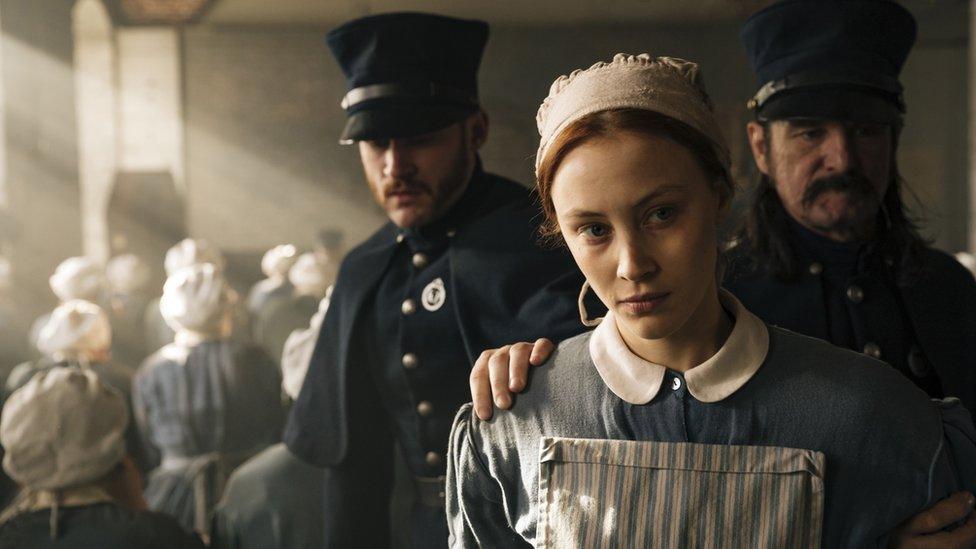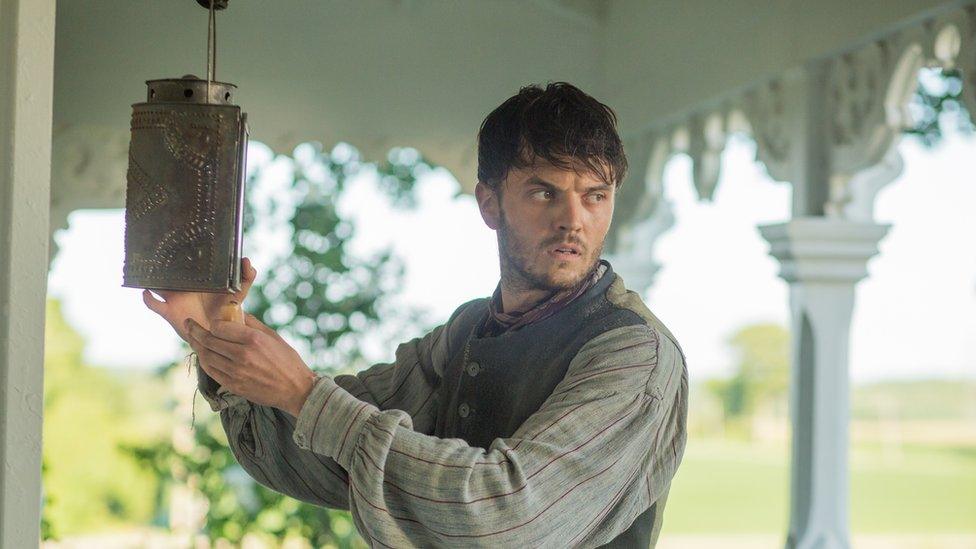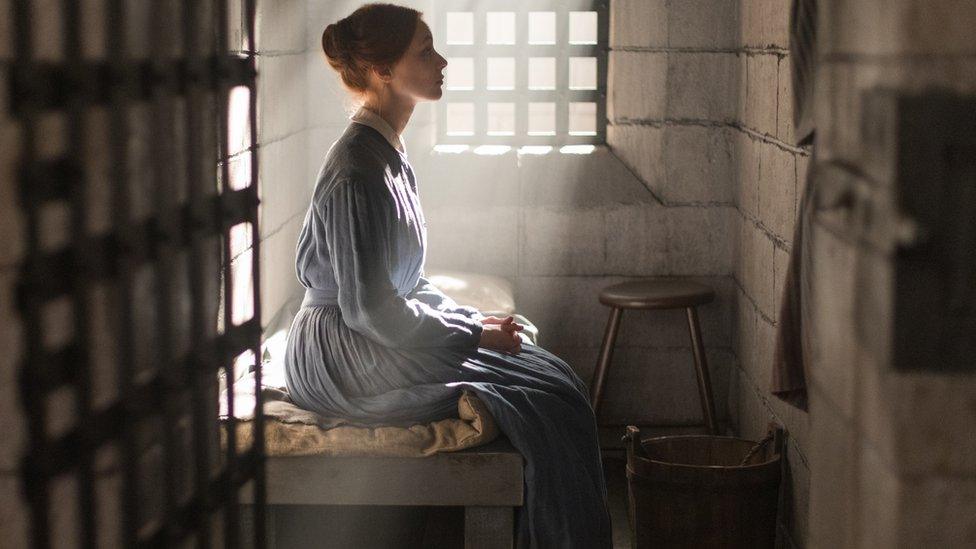Alias Grace: Will Gompertz reviews Netflix's latest drama ★★★☆☆
- Published

Stranger Things. Riverdale. 13 Reasons Why. Netflix certainly hasn't been short of gripping dramas this year. But is their latest one, released this weekend, up to the same standard? Will Gompertz finds out.
Margaret Atwood's books have been catnip for TV producers in 2017.
First there was the sublime Handmaid's Tale on Hulu, then Wandering Wenda on CBC, and now Sarah Polley's small screen adaptation of Alias Grace for Netflix, directed by Mary Harron.
We're in dense, complex territory with this one. Alias Grace is one of those multi-layered, deeply textured stories that keep English professors in business.
There's symbolism aplenty, psychological game playing, shaggy dog stories, and a couple of contested Murders Most Horrid on which a lecturer can chew semester after semester.
And that's before we get onto the main narrator, the eponymous Grace Marks, who is about as reliable as a 4G phone signal in rural Ireland (which also happens to be where her life started). Not that she had a smartphone - we're in mid-19th Century here.

Sarah Gadon stars as Grace Marks in Alias Grace
The set-up is as clear as her story is opaque.
We meet Grace in her early thirties. For the past 15 years she has been an inmate at a penitentiary in Canada having been found guilty of taking part in a double killing. She is a "celebrated murderess", which she considers a notch up from being simply a celebrated murderer.
The vibe is gothic psychodrama - think Twin Peaks meets Jane Eyre. Grace tells us her tale through a series of fireside chats she has with Dr Simon Jordan.
He is a young, earnest psychiatrist hired by the local worthies (led by Reverend Verringer, played by a mutton-chopped David Cronenberg) to produce a favourable assessment of Grace's mental state so she can be pardoned and set free.
He is a decent man (up to a point), but boring. He is played with great restraint by Edward Holcroft who succeeds in communicating Jordan's intensity and professionalism in a performance so dialled down you fear he might nod off between sentences.

Edward Holcroft, Rebecca Liddiard and Kerr Logan (pictured) also star in the show
Not so the inscrutable Grace, played with assurance as both a naïve teenager and marked woman by Sarah Gadon.
She has the focus of a look-out on a street corner, playing mind games with her inquisitor whom she effortlessly wraps around her fingers like the thread she uses to endlessly stitch together quilts.
To be honest, she does bang on a bit, but then who can blame her when the alternative is a beating at the hands of the brutal prison guards who "take pleasure in the distress of a fellow mortal".
And so, over the course of six slow-burn episodes, we hear how a quiet Irish girl found herself locked up behind bars in a brutal prison in Canada. Predatory men play a part, which is very topical of course, but only because some things never change.
As one female servant notes after the death of a jilted housemaid following a back-street abortion: "It is the curse of Eve we [women] must all bear."

Anna Paquin and Paul Gross as Nancy Montgomery and Thomas Kinnear
Sarah Polley's script of Atwood's masterful book is not so much a literal adaptation, as a literary one.
I hope she was paid by the word, for she uses many (as one of her characters might say). Which is fine, it works, but there were moments when I wondered what exactly the show was adding by taking the text from page to screen.
But that would be to discount Mary Harron's painterly eye and the tonal harmony she creates in each scene, which is an added bonus.
As the show progresses you realise that Grace's predicament is not really the story at all. She is the story.
This is a portrait of a young woman who has a lot in common with Shakespeare's Ophelia or Tennyson's Lady of Shalott: A tortured soul whose outer beauty becomes sublime because of - not despite of - her tragic circumstances.

Alias Grace dropped on Netflix on Friday morning
Rebecca Liddiard is terrific as Grace's mischievous mate Mary Whitney. She puts in the sort of screen-grabbing turn that suggests stardom is but a role or two away. Zachary Levi also delivers an eye-catching performance as Jeremiah Pontelli, a travelling salesman with a shaman's soul.
Alias Grace is a solid, well-made piece of television that doesn't hide its intelligence under a bonnet, as costume dramas can do. Nor does it attempt to keep your attention with soap opera style cliff-hangers. It is better than that.
But is it better than simply reading the book? I'm not so sure.
- Published28 October 2017
